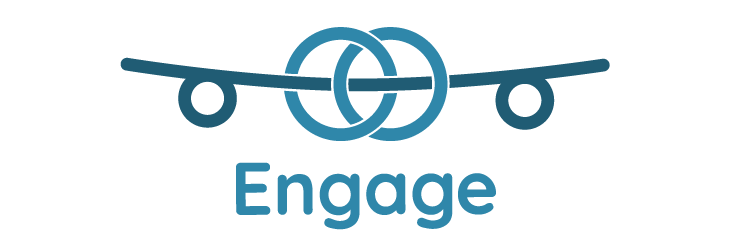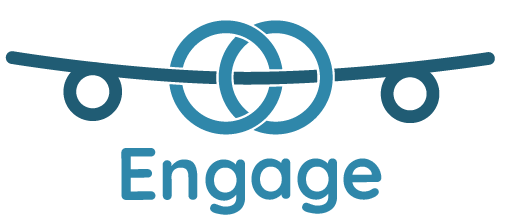
The Engage Call for PhDs and post-graduate theses closed on 01 November 2018.
FAQs
FAQs updated on 29 October 2018.
1. Contract
1.1. Are there any Intellectual Property Rights rules we need to know about within the Engage KTN?
The standard EC Horizon 2020 rules on intellectual property apply, therefore the results are owned by the beneficiary or third party that generates them. Please note that there is an obligation to disseminate results, giving visibility of funding. For further reading, refer to the Annotated Model Grant Agreement, Articles 23a to 31 (http://ec.europa.eu/research/participants/data/ref/h2020/grants_manual/amga/h2020-amga_en.pdf).
2. Funding
2.1. If the proposal includes multiple entities, can funds be transferred among consortium members?
PhD/post-graduate thesis funding through this Call covers (i) the cost of a student’s salary/grant for the duration of the programme (maximum of 3 years for PhDs), and (ii) the cost of relevant data/materials; to be clear, supervision costs, overheads and all other costs are ineligible.
Payments will be made by the Engage KTN coordinator (after approval) directly to the ‘proponent’ institution.
2.2. Is participation (registration fees, travel fees,…) at scientific conferences other than Engage/SESAR events considered as an eligible cost?
Separate travel bursaries will be available to cover student travel costs to certain Engage events.
If participation at a non-Engage event is essential it should be included in the proposal, but there is no guarantee that funding will be made available through the KTN.
2.3. Are costs for organising meetings between consortium members eligible?
PhD/post-graduate thesis funding through this Call covers (i) the cost of a student’s salary/grant for the duration of the programme (maximum of 3 years for PhDs), and (ii) the cost of relevant data/materials.
The cost of consortium meetings are not covered; separate travel bursaries will be available to cover student travel costs to certain Engage events (a consortium meeting could be held at the same event, but non-student costs are ineligible).
2.4. I am already a PhD student. Can I apply to this Call for funding to cover field work?
This Call is to fund new PhDs/post-graduate theses rather than students who have already started their PhD/post-graduate studies (see also FAQ 2.7). Please note the selection criteria in the Call document (Table 1), specifically “scientific relevance”.
Separate travel bursaries are available to cover student travel costs to certain Engage events, but not field work.
2.5. We expect our overall budget will exceed EUR 50 000 so we’ll request a contribution of 60% from Engage. Are we allowed to rely on co-funding for the remaining 40% of the budget? Are there any specific requirements regarding the source of the co-funding?
Co-funding is permitted, but please provide some information about the arrangement, e.g. the source and amount of co-funding; whether the co-funding is already in place; any other (brief) details that you think may be relevant.
2.6. FAQ 2.5 states that co-funding is permitted. If 40% comes from co-funding, how should we treat this – does it need to be dedicated in some way to Engage?
Any co-funding is entirely separate from Engage. Taking the FAQ 2.5 example of Engage contributing 60% of the budget and 40% from co-funding: whilst Engage will cover 60%, it is up to the proponent to show that they are able to cover the remaining 40%. We are not interested in any technicalities related to co-funding eligibility with other projects, but just need to know that co-funding exists.
2.7. FAQ 2.4 states that “this Call is to fund new PhDs/post-graduate theses” – how do you define “new”?
By “new” we mean not having started a PhD/post-graduate thesis before the Call opened on 01 August 2018.
2.8. When preparing the financial plan, which costs should we base the 60% funding on?
The financial plan should only include the eligible costs. So if the financial request is higher than EUR 50 000, the 60% that is funded by Engage is based on eligible costs only.
2.9. The Call will cover the “gross salary (or grant/scholarship) of one […] student for the duration of his/her programme”. Can a student be funded through a grant rather than a salary and contract?
A contract will be signed between the University of Westminster and the ‘proponent’ institution – eligible costs (however described, e.g. salary/grant/scholarship) will be stipulated in this contract.
2.10. Is part-time study permitted?
The Call specifies that funding is available for a maximum of 36 months, so this timeframe could accommodate a part-time post-graduate thesis (though not a part-time PhD).
2.11. Can the Call fund the student’s last six months, to write his/her thesis?
This Call is to fund new PhDs/post-graduate theses for the duration of the programme, however there could be a co-funding arrangement. By “new” we mean having not started the studies before the Call opened on 01 August 2018.
2.12. Is there flexibility in the starting date for post-graduate thesis (not PhD) students?
Yes, there can be more flexibility over the proposed start dates for post-graduate theses, provided they start in 2019 and finish within the timeframe of Engage.
2.13. Are PhD enrolment costs eligible?
The costs of enrolment are ineligible. PhD/post-graduate thesis funding through this Call covers (i) the cost of a student’s salary/grant for the duration of the programme (maximum of 3 years for PhDs), and (ii) the cost of relevant data/materials.
2.14. If, for example, our overall budget came to EUR 75 000, does this mean we can request a contribution of EUR 50 000? Can the remaining EUR 25 000 be co-funded?
This is the correct interpretation. Requested contributions higher than EUR 50 000 will receive 60% of the request, however at least EUR 50 000 will be funded, up to a maximum of EUR 150 000. So if the overall budget came to EUR 51 000, Engage would contribute EUR 50 000 (i.e. 98%) – the remaining budget (i.e. EUR 1000) would need to come from other sources (not Engage).
2.15. Should the financial plan estimate the costs of planned assistance to Engage events i.e. SESAR Innovation Days, thematic workshops, summer schools, etc.?
As student travel costs to certain Engage events will be covered by separate travel bursaries, there is no requirement to include a breakdown of these costs in the financial plan. Student attendance is required at specified KTN events (Section 3.2); see also FAQ 2.2 with regard to non-Engage events.
3. Consortium
3.1. Our institution is not entitled to issue PhD degrees, but there is an established arrangement with another institution to issue our PhDs. Can our institution apply for PhD funding on its own?
A proposal submitted by either a single entity or consortium must include an institution entitled to issue PhDs (or post-graduate degrees).
3.2. Where does the candidate actually study for the PhD? Does the institution have to be a member of the KTN?
The Call is open to any PhD-issuing institute in a country that is eligible to receive Horizon 2020 funding (i.e. a proposal submitted by either a single entity or consortium must include an institution entitled to issue PhDs or post-graduate degrees).
3.3. If the proposal includes co-supervisors, should a short CV of each person be included?
The proposal should make it clear who the academic supervisor is and include a supporting CV (max 3 pages) plus the five most relevant publications, as the scientific merit of the supervisor is one of the selection criteria. The names of any co-supervisors should be included, however only the CV and publications of the lead supervisor will be taken into consideration during the evaluation process.
3.4. Does the CV of the academic supervisor count towards the 5-page limit?
The short CV of the academic supervisor (max 3 pages) should be attached as an annex and does not count towards the 5-page limit of parts (2)-(4) of the proposal.
3.5. If the proposal is submitted by a consortium, should each institution include a letter of commitment?
A letter of commitment is only required if the ‘proponent’ institution is not entitled to issue PhD and/or post-graduate degrees. In such cases a letter of commitment is required from the academic supervisor within the consortium.
4. Schedule
4.1. When will the selection results be announced, and when can the PhD start?
Selected PhDs/post-graduate theses will be notified by 07 December 2018.
PhDs will be encouraged to start ASAP in 2019; we expect all PhDs to have started within the first quarter of 2019.
4.2. Will the Call deadline be extended?
No extension to the Call is foreseen. The Call will close on 01 November 2018.
5. Scope
5.1. Are “post-graduate theses” intended for master’s students or post-docs?
Funding for “post-graduate theses” is intended to support master’s students, and not post-docs.
5.2. Could a PhD topic have a non-technical perspective, such as researching the legal and regulatory challenges facing relevant technologies?
Non-technical proposals can be submitted, though given the nature of the Call, please note that the evaluation panel will have a strong technical background – so be sure to address the evaluation criteria.


